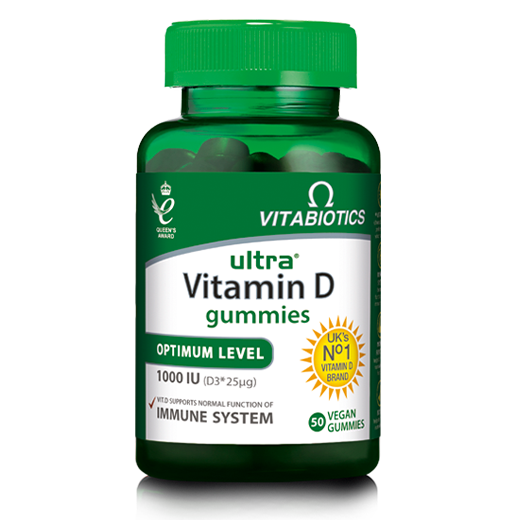Vitamin D is often called the ‘sunshine vitamin’, and for good reason – our bodies naturally produce it when our skin is exposed to sunlight. But with busy lifestyles, cooler weather and long winters, many of us don’t always get enough sun. So, how do you get vitamin D from the sun, and how can you make the most of it?
Whether you’re soaking up the summer sun or wondering how to top up during the winter months, understanding how sunlight supports vitamin D production can help you stay on top of your health.
Is The Sun The Best Source of Vitamin D?
For many, the sun is the best source of vitamin D, providing a natural and effective way to maintain healthy levels. This often leads to the question – is the sun the best source of vitamin d for everyone, or are there other reliable ways to meet your needs?
When UVB rays from the sun hit the skin, they trigger a reaction that allows the body to produce vitamin D. This process is essential, as vitamin D supports several important functions in the body. Here are some of the many benefits of Vitamin D:
- Contributes to the normal function of the immune system
- Contributes to the maintenance of normal bones and normal teeth
- Contributes to the maintenance of normal muscle function
- Contributes to normal blood calcium levels
- Has a role in the process of cell division
Despite its nickname, getting enough vitamin D from sunlight alone isn’t always easy. In the UK, between October and early March, sunlight isn’t strong enough to produce sufficient levels. That’s why the NHS and Public Health England recommend that everyone consider a vitamin D supplement during autumn and winter.
Curious why it’s called the sunshine vitamin? Learn more about why vitamin D is called the sunshine vitamin.
How Do We Get Vitamin D From The Sun?
So, how do we get vitamin D from the sun? It all starts with UVB rays. When they reach the skin, they interact with cholesterol in skin cells, triggering the production of vitamin D. This process happens naturally but only when the skin is directly exposed to sunlight – glass, shade and clothing can block the rays needed for vitamin D synthesis.
While sunlight is a great source of vitamin D, supplements can provide added peace of mind, especially during months with less sun.







